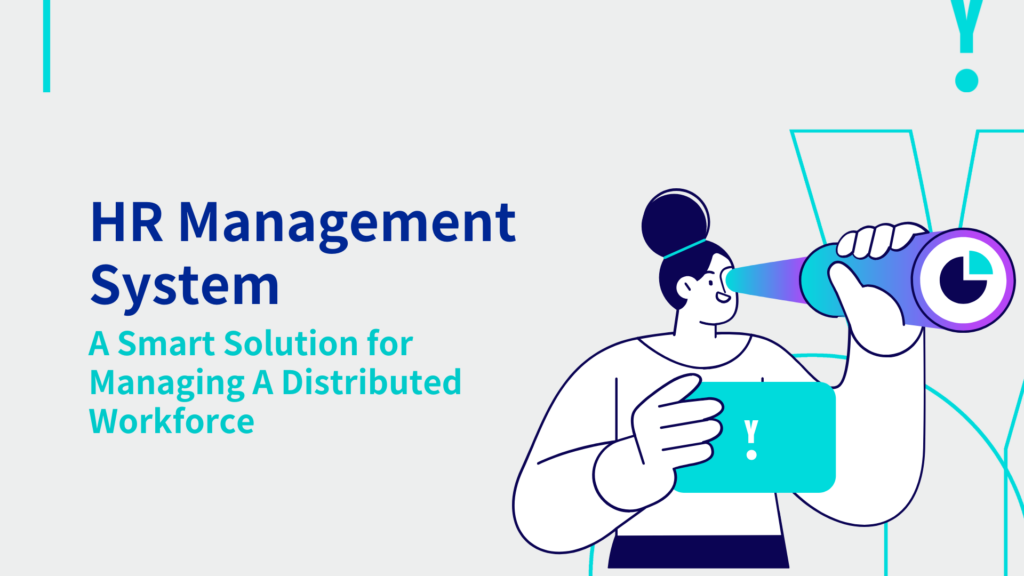
As businesses in Malaysia embrace remote work, managing a distributed workforce presents unique challenges. For many business owners, traditional HR methods are no longer enough to handle the complexities of off-site employees.
This is where an HR management system or HRMS becomes a game-changer. The rise of remote work is accelerated by recent global events. Therefore, it has made it essential for companies to invest in the right tools to maintain productivity and efficiency.
In this blog, we’ll explore how HRMS can transform your ability to manage a distributed team, streamline HR functions, and keep your business thriving in today’s digital landscape.
The Remote Work Revolution in Malaysia
Over the past few years, remote work has rapidly gained traction in Malaysia. Many business owners found themselves navigating a sudden shift from traditional office setups to virtual work environments. While this transition brought flexibility, it also raised questions about workforce management, employee engagement, and productivity.
Business owners now need to address these challenges effectively. Remote work offers various advantages, including cost savings on office space and access to a broader talent pool. However, without the right tools, managing a distributed team can be complex.
Employee tracking, payroll, and performance evaluations, once managed in person, now require digital solutions. An HRMS is useful in this situation.
What Is An HR Management System, & Why Do You Need It?
An HRMS (Human Resource Management System) is an all-in-one software solution that automates and streamlines HR functions. It integrates various processes such as payroll, employee attendance, performance management, and recruitment into a centralized system.
For businesses in Malaysia managing remote teams, an HR management system can be invaluable.
With an HRMS, business owners can track employee performance, automate administrative tasks, and stay compliant with Malaysian labor laws. Additionally, it helps create a digital workspace where HR departments can efficiently manage their workforce, regardless of location.
For remote teams, this means seamless communication and real-time updates on important HR matters.
Key Benefits of HRMS for A Distributed Workforce
Managing a remote workforce requires a more strategic approach than a traditional setup. Here are some ways HRMS can help business owners in Malaysia optimize their distributed teams:
1. Centralized Employee Data Management
In a remote setup, having all your employee data in one place is crucial. HRMS allows businesses to store and manage employee information in a secure and organized manner.
So, whether it’s updating personal details, monitoring leaves, or managing payroll records, everything is accessible from a single platform. This reduces manual work, minimizes errors, as well as ensures compliance with local regulations.
2. Simplified Payroll & Compliance
Calculating payroll for remote workers can be challenging, especially when they are located in different regions or countries. An HRMS automates the payroll process, ensuring accurate calculations based on hours worked, leave taken, and other factors.
Additionally, it helps business owners remain compliant with Malaysia’s employment laws, including EPF, SOCSO, and income tax regulations. Therefore, consider integrating an efficient HR management system into your workflow
3. Efficient Performance Management
Tracking the performance of a remote workforce can be tricky. Traditional methods of performance evaluations may not work in a distributed environment. HRMS also provides tools that enable business owners to set clear goals, monitor progress, and offer feedback in real time.
With built-in performance management features, managers can easily assess productivity, hence ensuring that employees meet their targets while working remotely.
4. Enhanced Communication & Collaboration
One of the biggest challenges of managing a distributed team is maintaining clear communication. HRMS platforms offer communication tools such as internal messaging, video conferencing, and task management features that keep your team connected.
Business owners can easily ensure that remote employees have easy access to company updates, policies, and announcements. Ultimately, it fosters better collaboration.
5. Seamless Recruitment and Onboarding
Recruiting talent remotely adds a layer of complexity to the hiring process. HRMS simplifies recruitment by offering tools to post job openings, review applications, and schedule virtual interviews.
Once hired, employees can go through the entire onboarding process online, from signing contracts to completing training modules. This not only saves time but also creates a smoother experience for new hires.
6. Real-Time Analytics Along with Reporting
Data is essential for making informed business decisions, especially when managing a distributed workforce. The best HR management system offers real-time analytics and reporting features that give business owners insights into employee performance, attendance, and overall HR metrics.
Henceforth, such data can be used to identify trends, address issues, and make improvements to workforce management strategies.
Addressing Remote Work Challenges with An HR Management System
Remote work comes with its own set of challenges, including maintaining productivity, fostering team cohesion, and ensuring employee well-being. An HRMS helps business owners tackle these issues head-on. Here’s how:
Managing Productivity
Without face-to-face supervision, tracking employee productivity can be difficult. HRMS systems offer time-tracking tools that allow managers to monitor hours worked, tasks completed, and project deadlines. With automated reports, business owners can easily identify high-performing employees and areas that need improvement.
Maintaining Employee Engagement
Keeping remote employees engaged requires extra effort. HRMS systems provide tools for employee recognition, feedback, and regular check-ins. By recognizing accomplishments and addressing concerns through virtual platforms, business owners can maintain high levels of engagement, even in a remote setting.
Supporting Employee Well-Being
Remote work can lead to feelings of isolation or burnout if not managed correctly. The best HR management system offers mental health support features.
These are virtual counseling, wellness programs, and regular surveys to check on employee well-being. These tools generally allow business owners to create a supportive environment where employees feel valued and connected, regardless of where they work.
Choosing The Right HRMS for Your Business
When selecting an HRMS, it’s important to choose one that aligns with your business needs and is scalable as your company grows. So, consider factors such as:
- User-friendliness: The platform should be easy for both HR staff and employees to use.
- Customization: Your business may have unique requirements. Therefore, choose an HRMS that allows for customization to fit your specific needs.
- Cloud-based Solutions: Cloud-based HRMS systems offer greater flexibility, thus allowing employees to access the platform from anywhere with an internet connection.
- Integration with Other Tools: Your HRMS should integrate with other tools your business uses, such as accounting software, time-tracking apps, and communication platforms.
End Note
In today’s business landscape, managing a remote workforce has become a necessity rather than a luxury. For business owners in Malaysia, investing in a comprehensive HR management system can help streamline operations.
It could effectively improve employee productivity, and ensure compliance with labor laws. By centralizing HR functions, automating administrative tasks, and offering real-time data, HRMS empowers businesses to effectively manage a distributed workforce. So, if you’re interested in such management software systems, connect with YOOV.
The future of work is flexible, and with the right HR management system in place, business owners can embrace this shift with confidence. The key to success lies in choosing a system that not only meets your current needs but also grows with your company.
As a result, it would ensure that your remote teams remain engaged, productive, and connected.
Connect with YOOV

Tel:+852 2988 8883
WhatsApp:Click Here
Email:cs@yoov.com
Website:https://www.yoov.com/